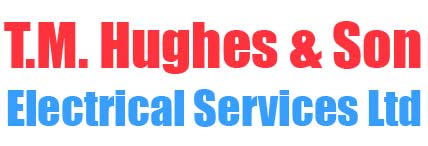What Is An EICR Certificate?
An EICR certificate (Electrical Installation Condition Report), also known as a Landlord’s Electrical Certificate or Electrical Safety Certificate, is a document that confirms the safety and condition of a property’s electrical system. An EICR is issued following an inspection and testing conducted by a qualified electrician. The certificate ensures that wiring, consumer units, sockets, and other electrical components meet current safety standards.
Why Is An EICR Certificate Important?
An EICR certificate ensures that a property’s electrical system is safe. Having an up-to-date EICR for rental properties is a legal requirement for landlords. For homeowners and businesses, an EICR offers peace of mind and sometimes may even be required for insurance or property sales.
What Does An EICR Involve?
An EICR involves assessing the condition of electrical systems in a property. This includes:
- Visual Inspections: Checking wiring, sockets, and consumer units for visible damage or signs of wear.
- Testing Circuits: To ensure circuits work without risk of overloading or faults.
- Identifying Issues: Potential hazards are identified and categorised:
- C1 (Danger Present): Requires immediate attention.
- C2 (Potential Danger): Needs addressing promptly.
- FI (Further Investigation): Additional checks are necessary.
Once the inspection is complete, a report is issued summarising the findings. If faults are identified, remedial work must be carried out to ensure compliance.
Who Needs An EICR Certificate?
- Landlords: It is law in the UK for landlords to provide tenants with an up-to-date EICR certificate, ensuring the electrical system is safe to use. Inspections are required every 5 years or at the start of a new tenancy.
- Homeowners: While not legally required, having an EICR every 10 years or when selling a property is recommended. A recent EICR will reassure buyers of the home’s safety.
- Businesses: It’s recommended to have an Electrical Installation Condition Report (EICR) every five years, though this is not a direct legal requirement.
How Often Is An EICR Required?
The frequency of EICR inspections depends on the type of property:
- Private Rented Properties: Every 5 years or with a change in tenancy.
- Domestic Homes: Every 10 years or after significant electrical work.
- Commercial Properties: Every 5 years or according to risk assessments or specific regulations.
Regular inspections ensure that properties remain safe over time as electrical systems age or are subjected to wear and tear.
What Happens If An EICR Fails?
If an EICR identifies faults, the property owner or landlord must arrange for remedial work to be carried out by a qualified electrician. Common issues include outdated wiring, faulty sockets, or overloaded circuits.
Once the necessary repairs are completed, a new certificate is issued to confirm compliance. Landlords must provide tenants with the updated certificate to show the property meets safety standards.
Benefits Of An EICR Certificate
Obtaining an EICR certificate offers several benefits:
- Ensures Occupant Safety: Reduces the risk of electrical fires, shocks, and accidents.
- Legal Compliance for Landlords: Meets regulations requiring a Landlord’s Electrical Certificate.
- Protects Property Value: Demonstrates a commitment to safety, which is appealing to buyers and tenants.
- Avoids Insurance Issues: Some insurers may require an up-to-date EICR for electrical fault claims.
How Much Does An EICR Certificate Cost?
The cost of an EICR varies depending on the size of the property, location, and complexity of the electrical system. For a typical residential property, prices start at £120. The size of the property is taken into consideration. Larger properties cost more. Commercial properties may also cost more depending on the size and the extent of the inspection required.
Need An EICR?
If you live in Essex, one of our NICEIC Electricians can undertake an EICR at your home or on rented property. Please contact us to book an inspection.

Hi, I’m Terry, the founder and owner of TM Hughes & Son Electrical Services
Please get in touch to book an appointment or receive a free, no-obligation quote
Call: 01245 830560
